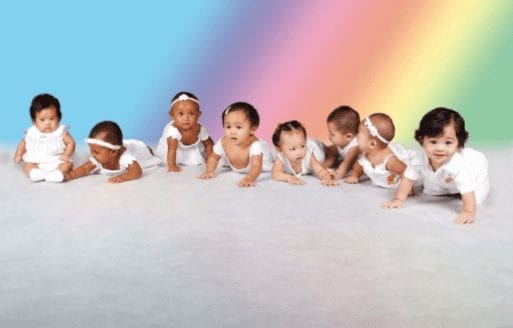When the world shut down earlier this year, couples were forced to shelter in place, spend every night together and … ignore each other physically?
Contrary to the notion of a lockdown-inspired baby boom to come, studies are showing a big-time baby shortfall coming.
A Brookings Institution report initially projected 300,000 to 500,000 fewer births next year, though its update indicated increased participation, if you will, that pegs the number closer to 300,000.
From the survey: “Combining the updated impact of the recession with our earlier additional impact of the public health crisis indicates that we should expect a baby bust in the range of about 245,000 to 320,000.”
Phillip Levine, an economics professor at Wellesley College and co-author of the Brookings report, told USA Today that the study results reflect a scattered landscape and that this reduction in 2021 births could have “lasting implications for society.”
Levine said the “boom” speculation was likely based on myths about birth spikes happening nine months after electricity blackouts or blizzards – when partners are forced to spend inordinate amounts of time with each other.
“It’s this nice myth that people have,” he said. “A very romantic image of society – it’s probably not true even in those instances, but it’s certainly not true now.”
A survey conducted by Laura D. Lindberg, Alicia VandeVusse, Jennifer Mueller and Marielle Kirstein of the Guttmacher Institute revealed that 34% of American women delayed plans to have a child or expect to have fewer children.
According to the Centers for Disease Control and Prevention, U.S. births in 2019 were the lowest since 1985, down 1% from 2018.
These numbers, with a target of 300,000 fewer births, would represent about an 8% decrease from last year’s 3.75 million births – or eight times the drop between 2018 and 2019.


















Add comment